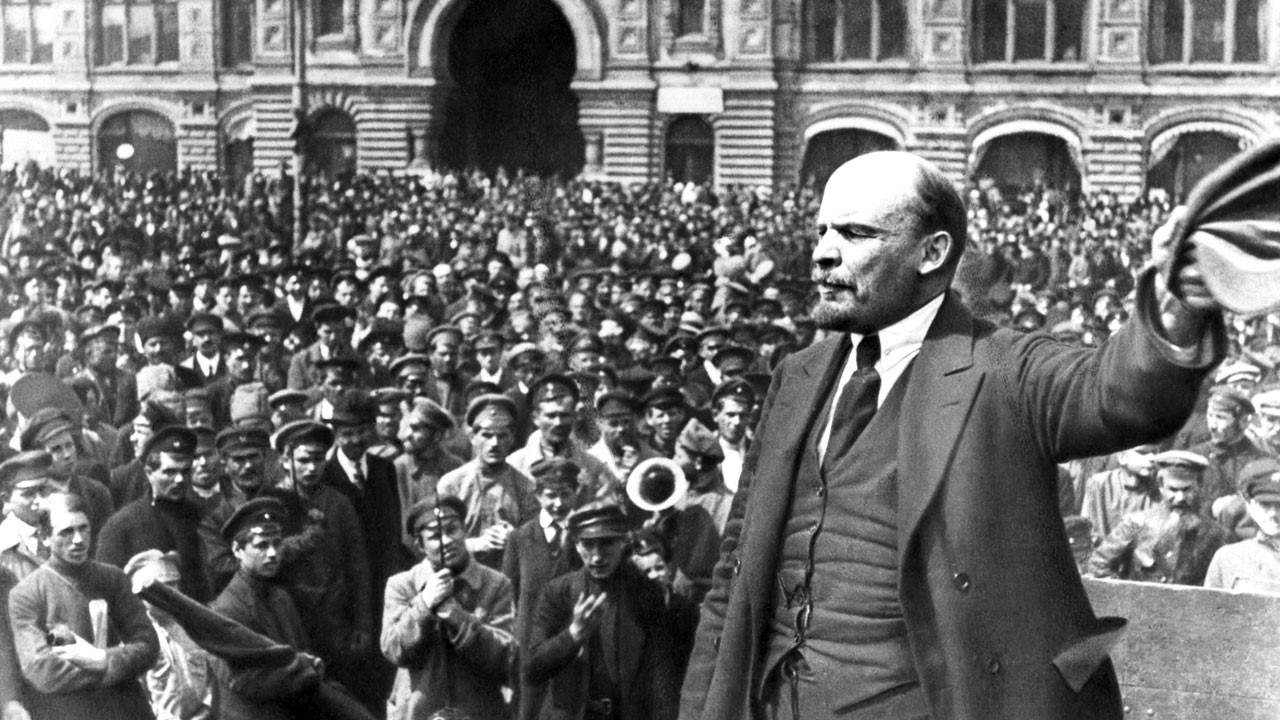
Curious about the group that changed the course of Russian history? The Bolsheviks, a faction within the Russian socialist movement, played a pivotal role in shaping the 20th century. This introduction will guide you through 20 intriguing facts about them, shedding light on their origins, beliefs, and the impact they had not only on Russia but on the entire world. From their early days under the leadership of Vladimir Lenin to their transformation of Russia into a communist state, each fact offers a glimpse into the revolutionary fervor that drove them. Whether you're a history buff or just looking to learn something new, these insights will provide a comprehensive overview of the Bolsheviks' legacy.
Who Were the Bolsheviks?
The Bolsheviks were a radical faction within the Russian Social Democratic Labour Party. They emerged in the early 20th century, led by figures such as Vladimir Lenin. Their name, derived from "Bol'shinstvo," means "majority" in Russian, signifying their victory over the Mensheviks, or "minority," in a party split.
-
Bolsheviks aimed to overthrow the provisional government in Russia, advocating for a socialist revolution. They believed in the establishment of a dictatorship of the proletariat, where workers would control the country.
-
In 1917, they played a pivotal role in the October Revolution, successfully toppling the provisional government and setting the stage for the creation of the Soviet Union.
Key Figures of the Bolshevik Movement
Among the Bolsheviks, several individuals stood out for their contributions to the movement and the shaping of Soviet politics.
-
Vladimir Lenin was the most prominent leader, known for his persuasive oratory skills and strategic thinking. He led the Bolsheviks to power in 1917.
-
Leon Trotsky, another significant figure, was instrumental in organizing the Red Army during the Russian Civil War.
-
Joseph Stalin, initially in the background, rose to prominence after Lenin's death. He eventually led the Soviet Union, marking a shift towards more authoritarian rule.
Ideological Foundations
The Bolsheviks were deeply influenced by Marxist theory, which guided their actions and policies.
-
They believed in dismantling the capitalist system, viewing it as exploitative and unjust. Their goal was to establish socialism, eventually leading to a classless, stateless society – communism.
-
Central to their ideology was the belief in a vanguard party. This concept entailed a group of professional revolutionaries guiding the working class to seize power.
The October Revolution and Its Aftermath
The October Revolution of 1917 stands as a watershed moment in history, marking the Bolsheviks' ascent to power.
-
Utilizing their influence in the soviets (workers' councils), the Bolsheviks launched a coup against the provisional government, leading to its collapse.
-
Following their victory, they signed the Treaty of Brest-Litovsk with Germany, ending Russia's involvement in World War I but ceding significant territories.
-
The Bolsheviks' rise to power initiated the Russian Civil War, a brutal conflict between the Red Army (Bolsheviks) and the White Army (anti-Bolshevik forces), resulting in millions of deaths and widespread devastation.
Bolshevik Policies and Their Impact
Once in power, the Bolsheviks implemented several policies to consolidate their control and reshape Russian society.
-
Land was redistributed from the nobility and the church to peasants, aiming to gain peasant support and undermine traditional power structures.
-
Industries were nationalized, placing factories, mines, and banks under state control, reflecting their commitment to abolishing private property.
-
The Cheka, a secret police force, was established to suppress counter-revolutionary activities, marking the beginning of a state security apparatus that would become notorious for its repressive tactics.
-
Education and literacy campaigns were launched to educate the masses, seen as essential for building a socialist society.
Legacy of the Bolshevik Revolution
The Bolshevik Revolution had profound and lasting impacts, both within Russia and globally.
-
It led to the establishment of the Soviet Union in 1922, the world's first socialist state, which would exist until its dissolution in 1991.
-
The revolution inspired a wave of communist movements worldwide, influencing political landscapes across continents.
-
However, the Bolsheviks' methods and the authoritarian nature of the Soviet regime have been subjects of intense debate and criticism.
-
The use of political repression, forced collectivization, and the creation of a one-party state are among the controversial aspects of their legacy.
-
Despite these controversies, the Bolsheviks' role in shaping the 20th century is undeniable, having altered the course of history through their radical transformation of Russian society and politics.
-
Today, the Bolshevik Revolution is studied as a pivotal event that not only reshaped a nation but also had a profound impact on global political thought and movements.
A Final Glimpse at the Bolshevik Saga
We've journeyed through the twists and turns of the Bolsheviks' story, uncovering facts that paint a vivid picture of their impact on history. From their revolutionary rise to power to the profound changes they brought to Russia and the world, their legacy is undeniable. Understanding the Bolsheviks isn't just about revisiting a chapter of history; it's about recognizing the forces that can shape nations and ideologies. Their story reminds us of the power of ideas, the complexities of political movements, and the enduring influence of history on today's world. As we close this chapter, let's carry forward the lessons learned and the curiosity to delve deeper into the stories that have shaped our past. The Bolsheviks' saga, rich with struggle, ambition, and transformation, offers timeless insights into the human quest for justice and equality.
Was this page helpful?
Our commitment to delivering trustworthy and engaging content is at the heart of what we do. Each fact on our site is contributed by real users like you, bringing a wealth of diverse insights and information. To ensure the highest standards of accuracy and reliability, our dedicated editors meticulously review each submission. This process guarantees that the facts we share are not only fascinating but also credible. Trust in our commitment to quality and authenticity as you explore and learn with us.


